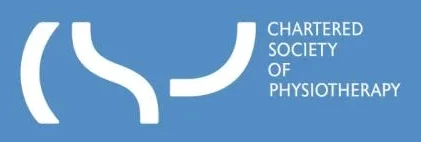Tension headaches are one of the most common types of headaches. They can range from mild to severe and affect people of all ages. While tension headaches do not typically cause long-term harm, they can be disruptive and uncomfortable. This article will provide an overview of tension headaches and discuss their causes, symptoms, diagnosis, and treatments. In today’s blog, we will discuss causes as well as how to relieve tension headaches.
What is a Tension Headache?
A tension headache, also known as a tension-type headache, is the most common type of headache. It is often described as a band of pressure around the head or a feeling of tightness in the forehead, neck, or back of the head. The pain can range from mild to moderate and is usually diffuse (not located in any specific spot). A tension headache may last for minutes to days and can come on gradually or suddenly.
Tension headaches are very common in adults and teenagers but can affect people at any age. They typically occur more frequently in women than men. Tension headaches are not life-threatening but can cause significant distress and interfere with daily activities if left untreated.
How Common are Tension Headaches?
Tension headaches are the most common type of primary headache, which means they are not caused by any other underlying medical condition. According to one estimate, tension-type headaches affect up to 78% of adults in the United States at some point in their lives. In other countries, tension-type headaches may be even more common—up to 90% of people in some Asian countries experience tension-type headaches.
What Causes Tension Headaches?
The exact cause of tension headaches is not known, but several potential risk factors can contribute to tension-type headache pain. Stress and emotional tension are often associated with tension-type headache pain, which can lead to muscle tension in the head and neck. Poor posture, the tension in the jaw muscles (due to teeth grinding or clenching), and tension in the shoulders can also lead to tension headaches.
Other potential triggers for tension-type headache pain include sleep disturbances, dietary changes, alcohol consumption, certain medications, caffeine withdrawal, and exposure to loud noises.
How can I Relieve a Tension Headache?
Tension headaches can often be treated with over-the-counter (OTC) pain relievers such as ibuprofen or acetaminophen. However, if these medications are not helping to relieve your headache pain, it is important to talk to a healthcare provider about other possible treatment options.
Many people find that lifestyle changes can help relieve tension headache pain. Regular exercise, stretching, and relaxation techniques such as yoga and meditation are effective in reducing tension headache symptoms. Other helpful measures include avoiding potential triggers for headaches (such as stress and poor posture), getting enough sleep, eating a balanced diet, and cutting back on caffeine. Biofeedback may also be useful in managing tension headaches by teaching you how to relax the muscles in your head and neck.
If tension headaches become severe or occur frequently, it is important to see a healthcare provider for an evaluation. Your doctor may recommend prescription medications or other treatments to relieve chronic headache pain. In some cases, physical therapy can also help reduce tension headache symptoms.
Physiotherapy to Relieve a Tension Headache
Physiotherapy can be a helpful treatment for relieving tension headache pain and improving the overall quality of life. A physiotherapist can help assess your posture, muscle tension, and functional movement patterns to identify any potential sources of tension headaches. They may also recommend exercises like stretching or strengthening as part of a tailored treatment plan to relieve tension headache symptoms.
In addition to helping relieve the pain associated with tension headaches, physiotherapy can help reduce stress levels, improve the range of motion in the neck and shoulders, improve blood flow and circulation throughout the body, and increase overall strength and endurance. It is important to work with a qualified medical professional when seeking physiotherapy treatments for chronic health conditions such as tension headaches.
Chiropractic Care to Relieve Tension Headache
Chiropractic care is a great way to relieve tension headache pain and improve overall wellness. Chiropractors use spinal manipulations—also known as adjustments—to relieve pressure from the spine and keep it functioning properly. When combined with other treatments such as massage therapy and nutrition counselling, chiropractic care can provide long-term relief for tension headaches.
One way that chiropractic care helps relieve tension headaches is by reducing muscle tension. When the muscles in your neck and back are tense, they can pull on the base of your skull, which can cause tension headaches. By making sure that the spine is properly aligned and that all muscle groups are functioning optimally, chiropractors can relieve this tension and relieve headache pain.
Chiropractic care also helps relieve tension headaches by improving blood flow to the brain. This improved circulation allows for more oxygenated blood to be delivered to the head area, helping reduce inflammation and relieve headache pain. Additionally, chiropractors use their hands to massage muscles around the head and neck, providing additional relief from headache pain.
Finally, chiropractic care helps relieve tension headaches by reducing stress levels. Stress can cause physical tension that can contribute to headache pain. Chiropractors use a variety of techniques, such as relaxation exercises and lifestyle counselling, to help relieve stress levels and relieve tension headaches.
What should I expect during my first chiropractic appointment?
During your first appointment, your chiropractor will conduct a thorough evaluation of your condition and medical history. They may also perform diagnostic tests and develop a treatment plan.
Contact Falcon Health
Tension-type headaches are very common but can have a significant impact on quality of life if left untreated. At Falcon Health, we provide professional and comprehensive chiropractic and physiotherapy treatments to help you overcome your tension headaches. Our experts will work closely with you to diagnose your symptoms & causes and develop a bespoke care plan to ensure you overcome your headache. To learn more, or to book an appointment, contact us today at 01444 257555 or info@falcon-health.com.
Article: Phoenix Marketing






